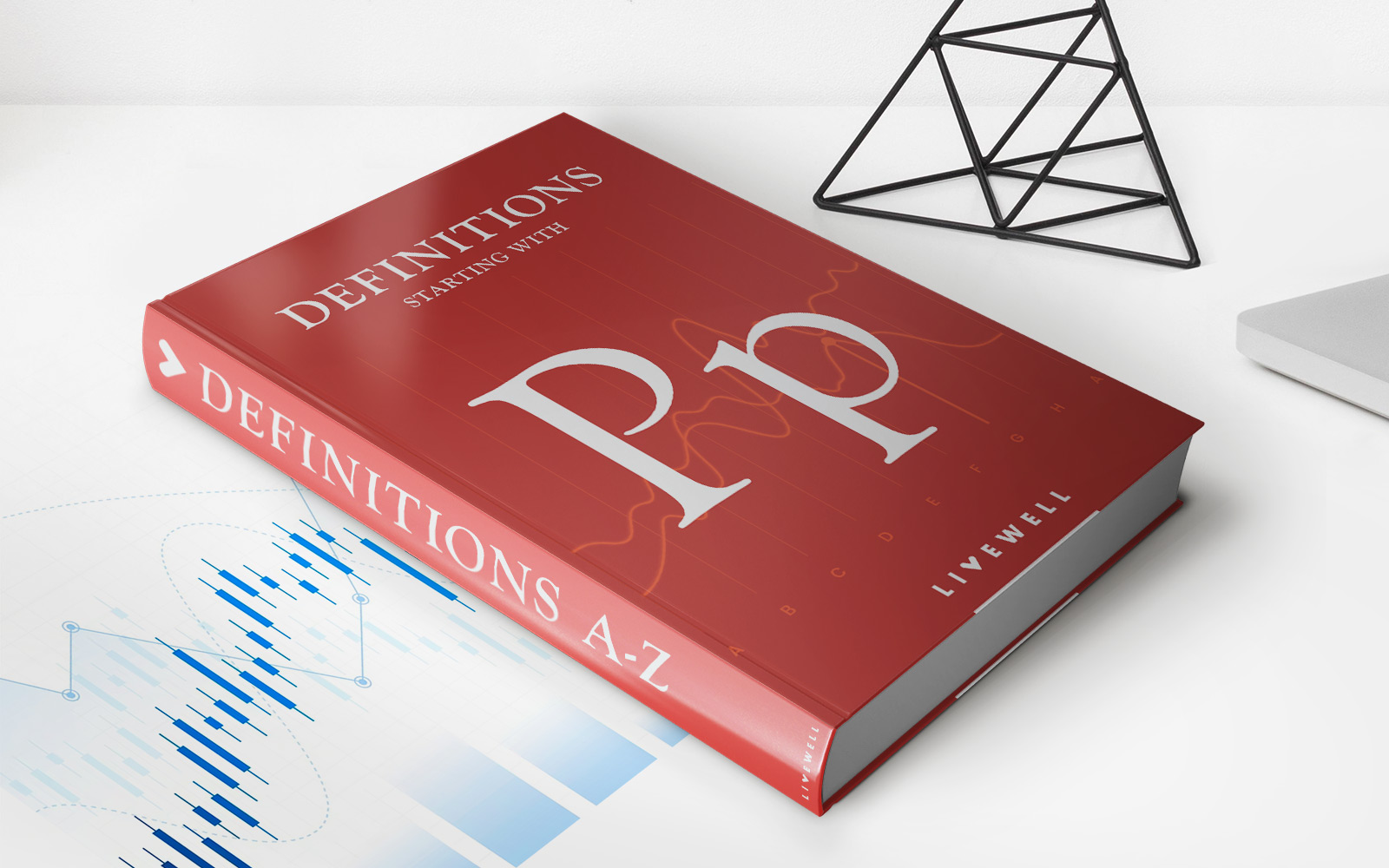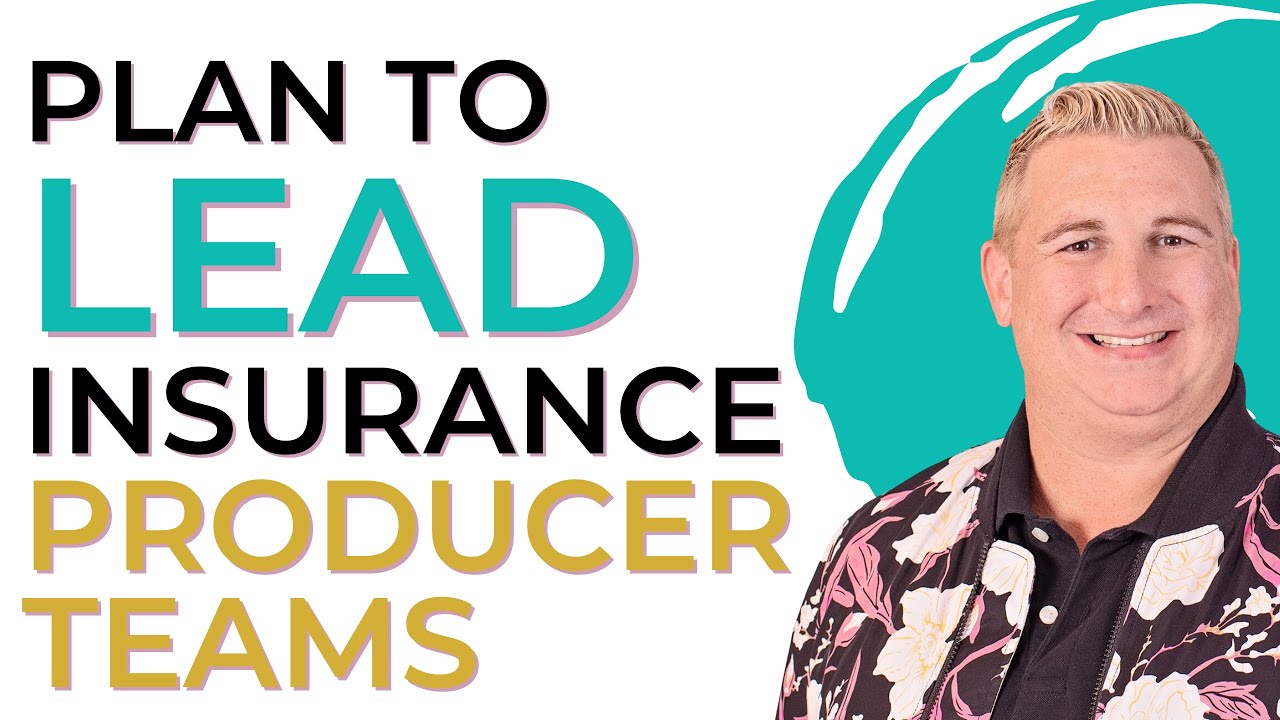

Finance
What Is A Producer In Insurance?
Modified: December 30, 2023
Discover the role of a producer in insurance and how they contribute to the finance industry. Learn more about the responsibilities and importance of producers today!
(Many of the links in this article redirect to a specific reviewed product. Your purchase of these products through affiliate links helps to generate commission for LiveWell, at no extra cost. Learn more)
Table of Contents
Introduction
An insurance producer plays a vital role in the insurance industry. They act as intermediaries between insurance companies and individuals or businesses seeking insurance coverage. With their deep understanding of insurance products and services, producers guide clients in selecting the right policies to protect their assets and manage risks.
Producers can specialize in various types of insurance, including life, health, property, casualty, and more. They are knowledgeable about the different insurance policies available in the market and provide expert advice tailored to the specific needs of their clients. Their expertise extends beyond just selling insurance; they also assist with policy renewals, claims processing, and providing ongoing customer support.
Insurance is a complex field, and producers undergo rigorous training and education to stay up to date with the ever-evolving industry regulations and products. They must possess excellent communication and interpersonal skills to effectively connect with clients and build long-term relationships built on trust.
In this article, we will discuss the role of an insurance producer in more detail, including their qualifications, duties and responsibilities, sales and marketing strategies, customer service, compensation, and regulatory compliance.
Role of a Producer in Insurance
The role of an insurance producer is multifaceted, encompassing various responsibilities throughout the insurance process. They act as the intermediary between insurance companies and clients, helping individuals and businesses secure the right insurance coverage to protect their assets and mitigate potential risks.
One of the primary functions of a producer is to assess the insurance needs of clients by analyzing their current situation and potential risks. They evaluate factors such as personal or business assets, liabilities, and financial circumstances to determine the appropriate insurance coverage and policy type.
Once the insurance needs are identified, producers work closely with clients to provide suitable insurance options and explain the details of each policy. They educate clients about the coverage limits, deductibles, exclusions, and other essential policy terms. Through their expertise, producers ensure that clients have a clear understanding of their insurance choices and can make informed decisions.
Producers also handle the paperwork involved in the insurance process, including completing applications, collecting necessary documentation, and submitting the necessary forms to insurance carriers. They serve as the point of contact between clients and insurance companies, facilitating smooth communication and addressing any concerns or queries that arise.
In addition to policy sales, producers play a crucial role in assisting clients with policy renewals and updates. They review existing policies, assess any changes in the client’s circumstances, and recommend adjustments or additional coverage as needed. This proactive approach helps ensure that clients’ insurance coverage remains relevant and sufficient over time.
Furthermore, producers provide ongoing customer support and act as a resource for clients throughout their insurance journey. In the event of a claim, producers assist clients with the claims process, serving as liaison between the client and the insurance company. They help clients understand the claim settlement procedure, gather necessary documentation, and ensure a fair and prompt resolution.
Overall, the role of an insurance producer is to provide comprehensive insurance solutions that meet the unique needs of each client. They serve as trusted advisors, combining their industry knowledge, communication skills, and personalized approach to help individuals and businesses safeguard their finances and assets.
Qualifications and Licensing
Being an insurance producer requires specific qualifications and licensing to ensure that individuals are equipped with the necessary knowledge and skills to operate in the industry. The exact requirements for qualifications and licensing vary depending on the jurisdiction and the type of insurance being sold.
Common qualifications for insurance producers include a high school diploma or equivalent. However, many insurance companies prefer candidates with a bachelor’s degree in fields such as business, finance, or economics. While a degree is not always a mandatory requirement, it can provide a solid foundation for understanding insurance principles and industry practices.
In addition to educational qualifications, aspiring insurance producers are usually required to complete pre-licensing education courses. These courses cover topics such as insurance laws, ethics, regulations, and different types of insurance products. The number of required hours for pre-licensing education can vary by state, but it typically ranges from 20 to 40 hours.
After completing the pre-licensing education, individuals must pass a state-administered licensing examination. The exam assesses the candidate’s knowledge of insurance concepts, policies, regulations, and ethical practices. The exam format may vary depending on the insurance type being pursued, such as life and health insurance or property and casualty insurance.
Once the licensing exam is successfully passed, candidates can apply for their insurance producer license. The application process typically involves submitting the necessary documentation, such as proof of pre-licensing education completion and examination scores, along with the appropriate fees.
It’s essential to emphasize that insurance producers must maintain their licenses by fulfilling continuing education requirements. These requirements vary by state and typically involve completing a specific number of continuing education credits within a defined time period. Continuing education helps producers stay up to date with industry changes, new regulations, and emerging trends in insurance.
It’s crucial for insurance producers to understand and comply with the licensing regulations specific to their jurisdiction. Failure to maintain a valid license can result in severe consequences, including the inability to sell insurance and potential legal ramifications.
Overall, the qualifications and licensing process for insurance producers ensure that they are knowledgeable, competent, and ethically responsible professionals. Obtaining and maintaining the necessary qualifications and licenses is a fundamental step in building a successful career in the insurance industry.
Duties and Responsibilities
The duties and responsibilities of an insurance producer encompass a range of tasks that are vital in ensuring the smooth operation of the insurance process and providing excellent service to clients. Let’s explore some of the key responsibilities that producers undertake:
Sales and Marketing: A significant part of an insurance producer’s role involves generating new business. They actively reach out to potential clients, identify their insurance needs, and present suitable insurance options. Producers utilize various marketing strategies, such as networking, referrals, and digital marketing, to expand their client base and increase sales.
Customer Service: Building and maintaining strong client relationships is crucial for insurance producers. They provide ongoing customer support, answer client queries, and resolve any concerns related to policies or claims. Producers serve as a point of contact for clients, ensuring that they feel valued and supported throughout their insurance journey.
Claims Handling: When a client files an insurance claim, it is the responsibility of the producer to guide them through the claims process. Producers assist clients in gathering necessary documentation, submitting claims to the insurance company, and advocating for fair and timely settlements. They act as a liaison between the client and the insurer, ensuring a smooth and efficient claims experience.
Educating Clients: Insurance can be complex, and it is the producer’s duty to educate clients about the various insurance products and policies available. They explain the coverage options, policy terms, and exclusions in a clear and understandable manner, empowering clients to make informed decisions that align with their needs and budget.
Policy Management: Producers are responsible for managing their clients’ insurance policies. This includes reviewing existing policies to ensure they remain relevant and making recommendations for adjustments or additional coverage when necessary. They also oversee policy renewals and updates, ensuring that clients’ insurance needs are continuously met.
Compliance with Regulations: Insurance producers must adhere to strict regulatory guidelines and ethical standards. They ensure all activities and transactions comply with relevant laws and regulations, ensuring transparency, fair business practices, and client confidentiality.
Continued Education: To stay current in the insurance industry, producers invest time in continuous education and professional development. They attend training programs, workshops, and industry seminars to enhance their knowledge and skills. This allows them to provide up-to-date information and expert advice to clients.
Overall, the duties and responsibilities of an insurance producer revolve around providing excellent customer service, sales and marketing, claims handling, policy management, and compliance with industry regulations. Effective execution of these responsibilities ensures client satisfaction, retention, and drives the success of insurance producers.
Sales and Marketing
Sales and marketing are critical aspects of an insurance producer’s role. Effective sales and marketing strategies help producers connect with potential clients, generate leads, and ultimately increase their sales and client base. Let’s delve into the key components of sales and marketing in the insurance industry:
Targeting and Prospecting: Insurance producers identify their target market and develop prospecting techniques to reach potential clients. They may utilize various methods, such as networking events, referrals from existing clients, online advertising, and social media platforms, to create awareness and generate leads for their services.
Needs Assessment: Producers initiate conversations with potential clients to understand their insurance needs and risk profile. By conducting a thorough needs assessment, producers can tailor their recommendations and propose suitable insurance solutions to address the specific requirements of each client.
Product Knowledge: An essential aspect of sales and marketing in insurance is having in-depth knowledge of the insurance products and policies available. Producers must understand the features, coverage limits, exclusions, and benefits of different insurance options to effectively communicate their value to potential clients.
Building Relationships: Building strong relationships with clients is crucial to sales success. Producers establish trust and credibility by providing personalized service, demonstrating expertise, and offering ongoing support. By nurturing these relationships, producers can leverage client loyalty and referrals to drive business growth.
Effective Communication: Insurance producers must effectively communicate complex insurance concepts and policies in simple terms to potential clients. They should be able to articulate the benefits and advantages of specific insurance products, helping clients understand how the policies address their needs and mitigate risks.
Customized Recommendations: Producers create customized insurance solutions tailored to individuals’ or businesses’ specific needs. By demonstrating a comprehensive understanding of the client’s unique circumstances, producers can recommend policies that provide appropriate coverage and promote peace of mind.
Negotiation and Closing: Producers are responsible for negotiating policy terms, premiums, and coverage limits with insurance carriers on behalf of their clients. They ensure that the policies meet the client’s requirements and budget. Once the negotiations are finalized, producers guide clients through the process of finalizing the policy and closing the sale.
Staying Updated: Sales and marketing techniques in the insurance industry are constantly evolving. Producers must stay updated on industry trends, new products, and sales strategies. They may attend industry conferences, participate in training programs, and engage in professional development activities to enhance their sales skills and adapt to changing market dynamics.
Producers’ success in sales and marketing is measured by their ability to attract and retain clients and achieve their sales targets. By effectively prospecting and targeting potential clients, building strong relationships, and staying knowledgeable about insurance products, producers can create a solid foundation for sales growth and long-term business success.
Customer Service
Customer service is a fundamental aspect of an insurance producer’s role. Providing exceptional customer service is crucial for building strong relationships with clients and ensuring their satisfaction throughout their insurance journey. Here are key elements of customer service in the insurance industry:
Educating and Informing: Insurance producers play a vital role in educating and informing clients about insurance products, coverage options, and policy terms. They explain complex insurance concepts in a clear and understandable manner, ensuring that clients have a comprehensive understanding of their insurance policies and can make informed decisions.
Responsive Communication: Producers must be responsive in their communication with clients, promptly addressing inquiries, concerns, and requests for assistance. They should be accessible through various communication channels, such as phone, email, and in-person meetings, ensuring that clients feel supported and valued throughout their insurance journey.
Policy Reviews and Updates: Producers take the initiative to regularly review clients’ insurance policies to ensure they remain relevant and provide adequate coverage. They proactively inform clients about any changes in policy terms, coverage limits, or new insurance products that may benefit them. This helps clients stay up to date and make necessary adjustments to their insurance coverage.
Claims Assistance: In the unfortunate event of a claim, producers play a pivotal role in assisting clients through the claims process. They guide clients from the initial claim submission to the final settlement, acting as a liaison between the client and the insurance company. Producers advocate for fair and timely claim resolutions, ensuring that clients’ interests are protected.
Addressing Client Concerns: Client satisfaction is paramount, and producers must address any concerns or complaints promptly and effectively. They listen attentively, empathize with clients, and take appropriate action to resolve issues. Producers proactively communicate with clients, keeping them informed about the status of their concerns until a resolution is reached.
Providing Policy Explanations: Insurance policies can be complex, and it is the producer’s responsibility to explain policy provisions, coverage limits, deductibles, exclusions, and other important details. By providing comprehensive policy explanations, producers ensure that clients have a clear understanding of their insurance coverage and can make informed decisions.
Building Long-Term Relationships: Producers aim to build long-term relationships with their clients by providing consistent, personalized, and reliable service. They take the time to understand clients’ changing needs and circumstances, offering appropriate policy recommendations and demonstrating their commitment to serving clients’ best interests.
Providing Ongoing Support: In addition to initial policy sales, producers provide ongoing support to clients throughout the duration of their insurance coverage. Whether it’s answering questions, assisting with policy changes, or providing guidance on risk management, producers ensure that clients have peace of mind and feel supported at all times.
By prioritizing customer service, insurance producers foster client loyalty and trust. These personalized and attentive interactions not only contribute to client satisfaction but also lead to positive referrals, which can significantly impact business growth and success.
Claims Handling
Claims handling is a crucial aspect of an insurance producer’s role. When clients experience a loss or damage covered by their insurance policy, it is the producer’s responsibility to guide them through the claims process. Here are key elements of claims handling in the insurance industry:
Initial Reporting: When a client needs to file an insurance claim, producers help them initiate the process by gathering all relevant information about the incident or loss. This includes documenting the time, date, and details of the event, as well as any supporting documentation or evidence that may be required.
Policy Coverage Review: Producers thoroughly review the client’s insurance policy to determine the scope of coverage and the applicable deductibles and limits. This allows them to inform the client about any potential exclusions or limitations that may affect the claim.
Assistance with Documentation: Producers assist clients in preparing the necessary documentation to support their claim. This may include gathering police reports, medical records, invoices, receipts, or any other relevant evidence that validates the loss or damage.
Communication with Insurance Company: Producers act as the liaison between the client and the insurance company, ensuring effective and timely communication throughout the claims process. They submit the claim on behalf of the client, provide all required documentation, and keep the client informed about the progress of their claim.
Claims Advocacy: Producers advocate for their clients during the claims process, ensuring that their interests are protected. They work closely with the insurance company’s claims adjusters, providing additional information or clarifications as needed to support the client’s claim and secure a fair settlement.
Claims Resolution: Producers strive to resolve claims as efficiently as possible. They monitor the progress of the claim, keep the client updated on any developments or changes, and work towards a fair and prompt resolution. Producers assist clients in understanding the settlement offer and negotiate with the insurance company, if necessary, to obtain a satisfactory outcome.
Customer Support: Throughout the claims process, producers provide ongoing support to clients. They address any concerns or questions the client may have, ensuring they feel supported and reassured during what can be a stressful time.
Post-Claim Support: After a claim is settled, producers continue to provide assistance to the client. They help with any additional paperwork or documentation required post-claim, provide guidance on the restoration or replacement process, and address any questions or concerns that may arise.
Claim Prevention: Producers also play a proactive role in claim prevention. They provide risk management advice, helping clients minimize potential risks to prevent future claims. By identifying gaps in coverage or recommending risk mitigation measures, producers contribute to the overall risk management strategy of their clients.
Claim handling is a critical aspect of the insurance producer’s role, emphasizing the importance of delivering attentive and diligent service to clients at every stage of the claims process. By providing guidance, support, and advocacy during claims, producers strive to ensure client satisfaction and maintain the trust and loyalty they have established.
Compensation and Commission
Compensation and commission are significant aspects of an insurance producer’s role. Producers are typically compensated through a combination of salary, commission, and bonuses. Let’s explore how compensation and commission work in the insurance industry:
Base Salary: Insurance producers often receive a base salary, which provides a regular income and serves as a financial stability foundation. The base salary amount varies depending on factors such as experience, location, company size, and the producer’s track record.
Commission: Commission is a crucial component of an insurance producer’s compensation. Producers receive a commission based on the insurance policies they sell. The commission structure may differ depending on the type of insurance and the company, but it is commonly a percentage of the total premium paid by the client.
Renewal Commissions: In addition to the commission earned from initial policy sales, producers may receive renewal commissions. These commissions are paid when a client renews their insurance policy, providing an ongoing source of income for producers. Renewal commissions incentivize producers to maintain long-term relationships with clients and encourage client retention.
Contingency Bonuses: In some cases, insurance companies offer producers contingency bonuses based on their overall performance. These bonuses are usually tied to sales targets, retention rates, or other key performance indicators. Contingency bonuses provide an additional financial incentive for producers to excel in their sales and customer service efforts.
Volume Bonuses and Incentives: Insurance companies may offer volume bonuses or incentives to producers who achieve high sales volumes within a specified period. These bonuses are designed to reward producers for their outstanding performance and motivate them to maximize their sales efforts.
Qualification Criteria: Some insurance companies may have certain qualification criteria that must be met to receive commissions or bonuses. These criteria usually revolve around factors such as sales targets, customer satisfaction ratings, and adherence to regulatory requirements. Producers who meet or exceed these criteria are eligible for additional compensation or higher commission percentages.
Compensation Structures: Compensation structures can vary among insurance companies. Some companies may offer a higher base salary with a lower commission percentage, while others may provide a lower base salary with a higher commission percentage. The specific compensation structure depends on factors such as the company’s business model, the type of insurance sold, and the target market.
Regulatory Considerations: It’s important to note that insurance producer compensation is subject to regulatory oversight to ensure fair and ethical practices. Regulatory bodies often monitor compensation structures to prevent potential conflicts of interest that may compromise the producer’s duty to act in the best interest of the client.
Overall, compensation and commission play a significant role in motivating and rewarding insurance producers for their sales efforts and client service. By offering a combination of salary, commission, and bonuses, insurance companies encourage producers to pursue excellence in their work, resulting in increased client satisfaction, business growth, and success.
Regulatory Compliance
Regulatory compliance is a crucial aspect of the insurance industry, including the role of insurance producers. Producers must adhere to a variety of regulations and ethical standards to ensure fair and ethical practices in their interactions with clients and insurance companies. Let’s explore the key elements of regulatory compliance for insurance producers:
Licensing and Registration: Producers must obtain the necessary licenses and registrations to operate legally in their jurisdiction. These licenses typically require producers to meet specific education and examination requirements, demonstrating their competency in insurance principles and regulations. It is essential for producers to maintain their licenses by complying with ongoing education and renewal requirements.
Consumer Protection: Regulatory bodies place a strong emphasis on consumer protection. Insurance producers must act in the best interest of their clients, providing suitable insurance solutions and disclosing any conflicts of interest that may arise. Producers should prioritize transparency, honesty, and fairness in their dealings with clients, ensuring that they are fully informed and empowered to make informed decisions about their insurance coverage.
Disclosure Requirements: Producers have a responsibility to provide clients with accurate and complete information about insurance policies, coverage details, exclusions, deductibles, and any other relevant terms. They should clearly explain the features and limitations of insurance products to enable clients to understand the scope of coverage they are purchasing.
Anti-Fraud Measures: Insurance producers must be vigilant in preventing fraud. They have a duty to report any suspected fraudulent activity or misrepresentation to the appropriate authorities. Producers should also make efforts to safeguard clients’ confidential information and personal data, adhering to privacy and data protection regulations.
Record-Keeping and Documentation: Producers are required to maintain accurate and up-to-date records of their interactions with clients and insurance companies. This includes recording policy discussions, client information, claims documentation, and any other relevant communication or transaction details. Maintaining proper documentation helps producers demonstrate compliance with regulatory requirements and provides a trail of evidence in case of any disputes or audits.
Continuing Education: Insurance producers must engage in continuous professional development to stay updated on industry trends, changes in regulations, and emerging best practices. They should actively seek out educational opportunities, attend training programs, and participate in industry seminars to enhance their knowledge and skills. This ongoing learning ensures that producers remain competent and informed, providing the best possible service to their clients.
Compliance Oversight: Regulatory bodies monitor and enforce compliance within the insurance industry. They conduct audits, investigations, and examinations to ensure that insurance producers are adhering to the applicable regulations. Producers should be prepared to respond to any regulatory inquiries, providing the necessary documentation and evidence of their compliance.
Ethical Conduct: Ethical conduct is a fundamental aspect of regulatory compliance. Producers must act with honesty, integrity, and professionalism in all their dealings. They should avoid conflicts of interest, maintain confidentiality, and prioritize client interests above personal gain.
Adhering to regulatory compliance is not only a legal requirement but also essential for maintaining the reputation and integrity of insurance producers. Compliance ensures that clients are treated fairly, protected from fraud or misconduct, and receive the highest standard of service in their insurance transactions.
Key Skills and Attributes
Insurance producers require a combination of skills and attributes to succeed in their role. These skills and attributes not only enable them to effectively navigate the complex insurance landscape but also contribute to building strong relationships with clients. Here are some of the key skills and attributes that are essential for insurance producers:
Product Knowledge: Insurance producers must possess a comprehensive understanding of insurance products, including their features, coverage options, and policy terms. This knowledge enables them to guide clients in selecting the most appropriate insurance solutions tailored to their specific needs.
Communication Skills: Effective communication skills are crucial for insurance producers. They must be able to explain complex insurance concepts and policies in simple and understandable terms to clients. Producers should also be active listeners, attentively understanding clients’ needs and concerns and effectively addressing them.
Interpersonal Skills: Building strong relationships with clients is key for insurance producers. They should have strong interpersonal skills, allowing them to connect with clients, establish trust, and create long-term partnerships based on mutual understanding and respect.
Negotiation Skills: Producers must possess strong negotiation skills to advocate for their clients during policy discussions and claims settlements. They should be adept at finding common ground and ensuring a fair and favorable outcome for their clients while collaborating with insurance carriers.
Problem-Solving Skills: Insurance producers often encounter complex situations and client needs. They need to be analytical and possess excellent problem-solving skills to assess risks, analyze coverage options, and propose suitable insurance solutions that address clients’ unique situations.
Time Management: Producers handle multiple clients and must balance various responsibilities. Effective time management skills allow them to prioritize tasks, meet deadlines, and provide timely service to clients, ensuring all necessary processes are completed efficiently.
Ethical Conduct: Insurance producers must uphold high ethical standards and act in the best interest of their clients. They should prioritize client needs, maintain confidentiality, and avoid conflicts of interest that may compromise their fiduciary responsibilities.
Resilience: The insurance industry can be challenging and demanding. Producers should have resilience, remaining positive and focused even when faced with rejection, client concerns, or complex situations. They should be persistent and determined, finding solutions and maintaining a proactive approach.
Adaptability: Adaptability is crucial in the fast-paced insurance industry. Producers must be flexible and open to change, continuously learning and adapting to emerging trends, new regulations, and advancements in insurance technology. This allows producers to provide the most up-to-date and informed advice to clients.
Attention to Detail: Insurance is a detail-oriented industry, and producers should have a keen eye for detail. They must review policy language, accurately complete paperwork, and ensure all necessary documentation is provided during the claims process. Attention to detail helps eliminate errors and ensures compliance with regulations.
By cultivating these key skills and attributes, insurance producers can excel in their role and provide exceptional service to their clients. These qualities are integral to building trust, fostering customer satisfaction, and driving success in the insurance industry.
Conclusion
In conclusion, insurance producers play a critical role in the insurance industry. They serve as trusted advisors, assisting clients in navigating the complex world of insurance and selecting the right policies to protect their assets and manage risks. Producers possess a combination of skills and attributes that enable them to provide exceptional service to their clients.
From qualifying for licensing to continuously updating their knowledge through ongoing education, insurance producers demonstrate their commitment to regulatory compliance and professional development. They excel in sales and marketing, using their expertise to prospect, educate, and build relationships with potential clients.
Customer service is at the heart of an insurance producer’s responsibilities. They provide ongoing support to clients, educate them about insurance policies, assist with claims handling, and ensure that clients’ needs are met throughout their insurance journey. By prioritizing client satisfaction and emphasizing ethical conduct, producers build long-term relationships with their clients based on trust and mutual respect.
Compensation and commission structures incentivize and reward producers for their sales efforts and exceptional service. Producers adhere to regulatory compliance, ensuring fair and ethical practices, and upholding consumer protection standards. Their adherence to regulations and ethical standards also helps maintain the integrity and reputation of the insurance industry as a whole.
In summary, insurance producers are skilled professionals who add value by providing expert guidance, remarkable customer service, and personalized insurance solutions. Their dedication to ongoing professional development, adherence to regulatory compliance, and ability to build strong relationships with clients contribute to their success and the overall success of the insurance industry.














